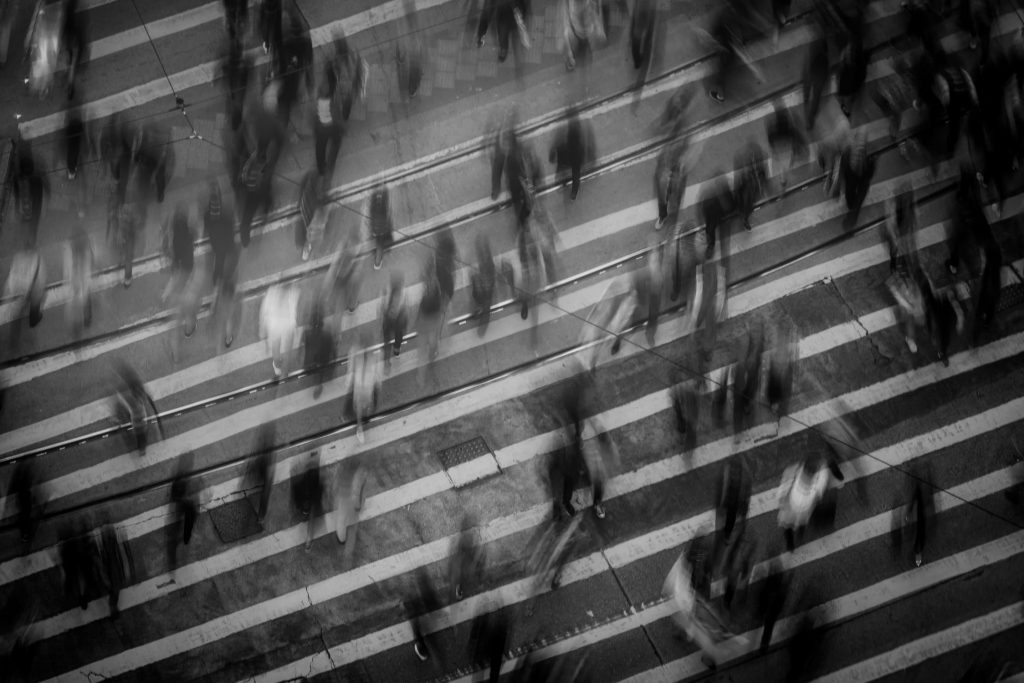
Last week, when I was writing outside at a coffee shop, I took a break to chat with this guy I know from around the neighborhood, James, who’d walked by with his amiable and faithful pitbull. While we were talking, a young man with friendly, thoughtful eyes came up and asked us for money. I guiltily explained that I had no cash because now, in covid-19 times, who carries cash anymore.
James, however, had a whole different vibe with the guy. “No man, I can’t help you,” he said, in this super chill way. “I appreciate your hustle, though, brother.” He spoke with this languid, unhurried rhythm. Then he casually fist-bumped the guy, said goodbye to him and me, and strolled off, his pitbull waddling happily alongside him.
James had once done 20 years in prison and I think that’s where he learned to relate to people in that loose, easy-going, but firm way. To me, it had been like a scene in an early Martin Scorsese movie.
The very next day I was sitting and writing outside a different coffee shop and a severely drunk man was teetering from table to table, asking people for money or cigarettes. At one point he wobbled up to the table next to mine, where a bald, stern-looking, Ethiopian man in stylish clothes sat smoking. The Ethiopian man made an angry flicking away motion with his hand and said, in this thick accent, “Get out of here, go away.” He was so forceful that he almost made me get up and scurry away.
The day after that I was at my neighborhood coffee shop – home base, as it were – talking to my friend Jack, when a man suddenly materialized next to us asking us for money. He made incomprehensible mutterings and quoted the Bible, something from Romans. He wore a blue T-shirt and he had the physique of a child.
This time I had some cash on me, four quarters in the bottom of my backpack. To maintain social distancing I set it on this planter ledge-thing and then went back to my seat. He pocketed the change.
Jack didn’t give him any money. Instead, Jack got up from his chair and said, authoritatively, “Come over here for a minute, I want to talk to you.” He sounded like the guy’s dad. The man instantly obeyed. The two of them went across the street and sat on a wooden bench. “Sit right there,” Jack commanded, pointing to a spot on the bench. I couldn’t hear the rest of their exchange and resumed my writing. A few minutes later Jack came back.
“What on earth did you say to that guy?” I asked.
“I just laid a little Advaita Vedanta on him,” Jack said, happily. Advaita Vedanta is an ancient spiritual philosophy of non-dualism from India. Jack worked for almost two decades in a violent psych ward, so he is a mentally-ill-person whisperer.
All three of these instances were wonderful lessons for me about being in relationship. James had been so laid-back and collegial with the man who’d asked us for money, whereas my guilty apology had been a distancing wall between me and that dude.
My giving a buck to the mentally ill guy who’d come up to me and Jack was tainted with the same guilt. Guilt can be a useful indicator of having done something wrong that needs to be rightened. But it can also be just one more expression of “the mood of you don’t love me,” which Adi Da says is the fundamental mood of the ego. It is the chronic ego game of avoiding relationship. Jack, on the other hand, engaged with the dude, even offered him a little lecture in Eastern philosophy. I’ll bet the guy remembered Jack’s offering more than my dollar.
I don’t want to make it sound like I’m always some sort of freakish guilty dork with panhandlers. Sometimes I engage in rowdy, garrulous ways with strangers asking for money. But sometimes I don’t.
Even the Ethiopian man’s disdainful shooing away of the drunken man was wonderful in its way. It was simple, direct, honest, not the least bit condescending. In that sense, it was vibrantly relational. I believe that, on some level, the drunken man appreciated it and was served by it, a gruff sidewalk benediction.
Here’s some Dharma from my Guru that this reminds me of:
“The ego-“I” is the avoidance of relationship (or the contraction of feeling-attention). The life of the ego-“I” is separation and separativeness or the reactive pattern of “you do not love me”.
The avoidance of relationship is a contraction or separation at the primal center of life, at the origin of consciousness and energy, the Heart…This contraction is a folding away, a compulsive solidification which…creates “me” (identification, the point of contraction)…
Nevertheless, it is possible to be converted, transformed, and rightly adapted and, thus, to no longer live as the ego-“I” (or the separate and separative self-sense).“
Just think how relational it would be for you to subscribe to this blog! And/or leave a comment! It boggles the mind.
